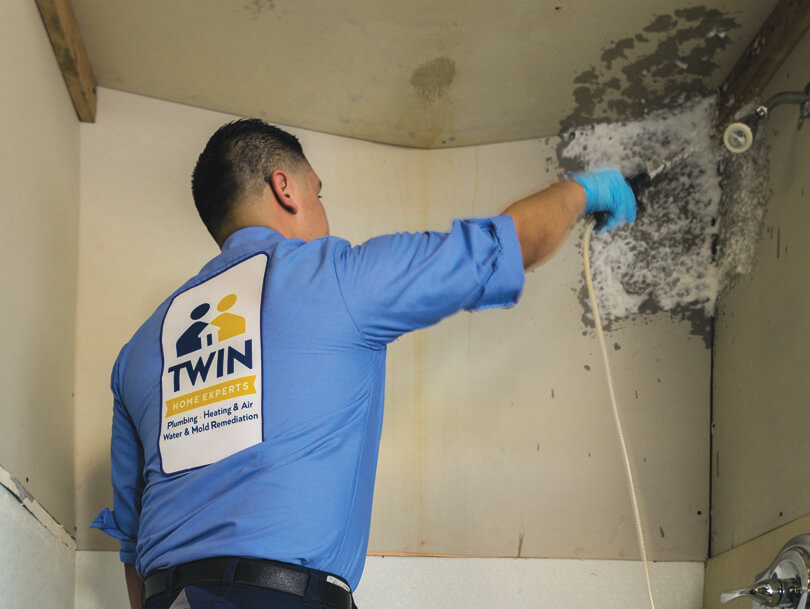Mold Testing Services Houston TX, where the hot and humid climate creates the perfect breeding ground for mold growth.

While mold may seem like a harmless nuisance, it can pose significant health risks to individuals exposed to it. In this article, we will explore the various health risks associated with mold exposure in Houston and discuss ways to mitigate these risks.
What is Mold?
Mold is a type of fungus that thrives in damp and humid environments. It reproduces by releasing spores into the air, which can then settle on surfaces and begin to grow under the right conditions. Common indoor molds include Aspergillus, Penicillium, and Stachybotrys chartarum (black mold).
Health Risks of Mold Exposure
Exposure to mold can have a range of adverse health effects, particularly for individuals with allergies, asthma, or weakened immune systems. Some of the health risks associated with mold exposure in Houston include:
Respiratory Issues
Mold spores can trigger allergic reactions in susceptible individuals, leading to symptoms such as coughing, wheezing, sneezing, and shortness of breath. Prolonged exposure to mold can exacerbate respiratory conditions such as asthma and bronchitis, making it difficult for individuals to breathe comfortably.
Allergic Reactions
In addition to respiratory symptoms, mold exposure can also cause allergic reactions such as skin rashes, itching, and redness. These reactions occur when the immune system overreacts to mold spores, leading to inflammation and irritation of the skin.
Sinus Infections
Exposure to mold can irritate the nasal passages and sinuses, increasing the risk of sinus infections. Symptoms of sinus infections may include facial pain, pressure, congestion, and nasal discharge. Individuals with chronic sinusitis may experience recurrent infections due to mold exposure.
Asthma Attacks
For individuals with asthma, exposure to mold can trigger asthma attacks and worsen existing symptoms. Mold spores can irritate the airways, leading to inflammation and constriction of the bronchial tubes. This can result in coughing, wheezing, chest tightness, and difficulty breathing, requiring immediate medical attention.
Fungal Infections
In rare cases, mold exposure can lead to fungal infections in the lungs or other parts of the body. Immunocompromised individuals, such as those with HIV/AIDS or undergoing chemotherapy, are particularly vulnerable to fungal infections. These infections can be serious and may require intensive medical treatment.
Vulnerable Populations
While mold exposure can affect anyone, certain populations are at higher risk of experiencing severe health effects. These include:
- Children: Children have developing immune systems and may be more susceptible to the effects of mold exposure.
- Elderly Individuals: Elderly individuals may have weakened immune systems and underlying health conditions that make them more vulnerable to mold-related health issues.
- Pregnant Women: Pregnant women are more prone to respiratory infections and may experience complications if exposed to mold during pregnancy.
- Immunocompromised Individuals: Individuals with weakened immune systems, such as those with HIV/AIDS or undergoing immunosuppressive therapy, are at increased risk of fungal infections and other health complications from mold exposure.
Mitigating Health Risks
While mold exposure can be concerning, there are steps that individuals can take to mitigate the health risks associated with mold:
- Identify and Remove Mold Sources: Conduct regular inspections of your home or workplace to identify any areas of mold growth. Address moisture issues promptly and remove mold-infested materials to prevent further spread.
- Improve Ventilation: Ensure adequate ventilation in indoor spaces to reduce humidity levels and discourage mold growth. Use exhaust fans in bathrooms and kitchens, and open windows whenever possible to improve air circulation.
- Use Air Purifiers: Consider using air purifiers with HEPA filters to remove mold spores and other airborne contaminants from indoor air.
- Maintain Cleanliness: Keep indoor spaces clean and free of clutter to prevent mold growth. Regularly clean and vacuum carpets, upholstery, and other surfaces to remove mold spores and prevent them from settling.
- Seek Professional Help: If you suspect mold growth in your home or workplace, seek the assistance of professional mold remediation experts. They can conduct thorough inspections, identify mold sources, and safely remove mold-infested materials to ensure a healthy indoor environment.
Conclusion:
Mold exposure can have serious implications for health, particularly in humid climates like Houston. From respiratory issues and allergic reactions to sinus infections and asthma attacks, the health risks associated with mold exposure are varied and significant. It’s essential for individuals to be aware of these risks and take proactive measures to mitigate them, such as identifying and removing mold sources, improving ventilation, and seeking professional help when needed. By addressing mold issues promptly and effectively, individuals can create a safer and healthier indoor environment for themselves and their families.
Mold Testing Houston
5926 Dellfern Dr, Houston, TX 77035, United States
1-832-409-2125
